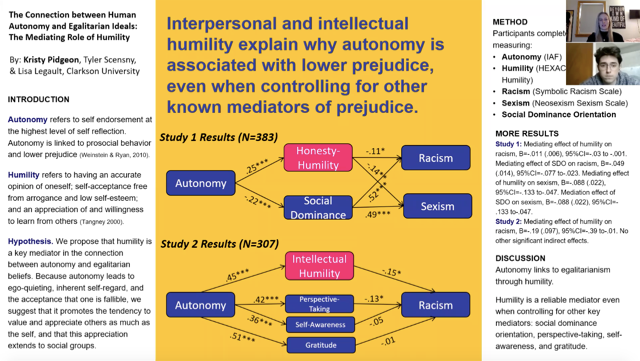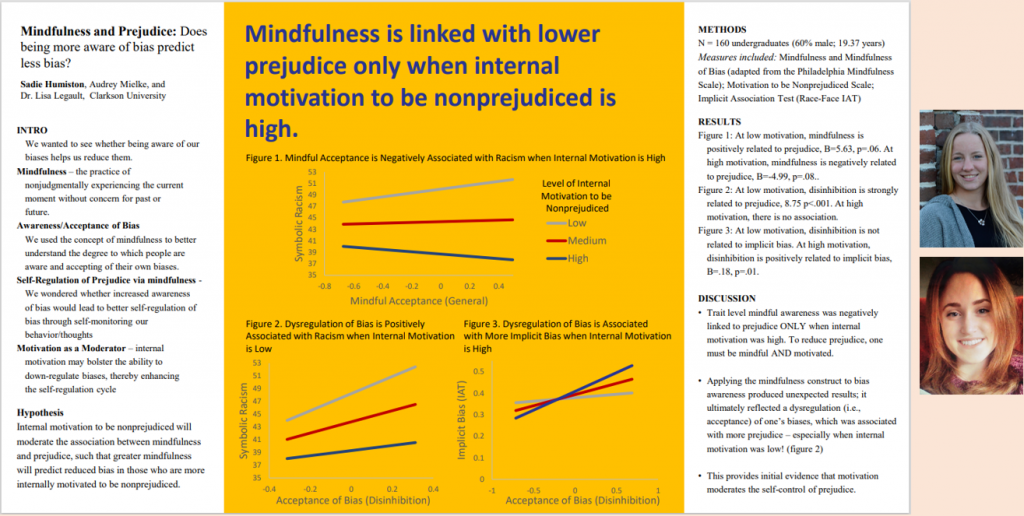Recently, several Clarkson undergraduate students presented at the Society for Personality and Social Psychology Convention (SPSP) held virtually last month. The event draws more than 3800 social and personality psychologists from academia, non-profit, government, and private sectors to discuss research, network and collaborate on projects, and pursue professional development while advancing science and pedagogy in the field.

Kristy Pidgeon ‘21 and Tyler Scensny ‘21 presented on “The Connection between Human Autonomy and Egalitarian Ideals: The Mediating Role of Humility”. Their research showed that humility (i.e., willingness to be wrong) can explain why those with more agency and self-determination are less prejudiced. They found that interpersonal and intellectual humility explain why autonomy is associated with lower prejudice, even when controlling for other known mediators of prejudice (such as social dominance orientation, perspective-taking, self-awareness, and gratitude). This research will be submitted for publication with their research mentor, Lisa Legault, in the coming months.
Mariama Jawo ‘21, Breanna Hamilton ‘21, and Jessica Adams ‘20 presented a poster in which they examined mental health problems in EMS/EMT providers during COVID-19. EMS and EMT providers provided information about their demographics, experiences as providers during COVID-19, symptoms of post-traumatic stress disorders, and symptoms of depression. The results from this study will add to the research that is trying to understand how serving as a medical provider during a pandemic affects the mental health of first responders. Professors Jen Knack, Doug Bohl, and WPI Professor Brent Faber are doing a larger research project on this topic.

Sadie Humiston ‘21 and Audrey Mielke ‘21 did their presentation on the role of mindfulness in race bias. They asked the question, does being more aware of bias predict less bias? They theorized that mindfulness is linked with lower prejudice only when internal motivation to be nonprejudiced is high. They hypothesized that internal motivation to be nonprejudiced would moderate the association between mindfulness and prejudice, such that greater awareness of bias would predict reduced bias in those who are more internally motivated to be nonprejudiced. They found that trait level mindful awareness was negatively linked to prejudice ONLY when internal motivation to be nonprejudiced was high. Their research showed that to regulate racial prejudice, one must be both mindful AND motivated. This research was supervised by Lisa Legault.
